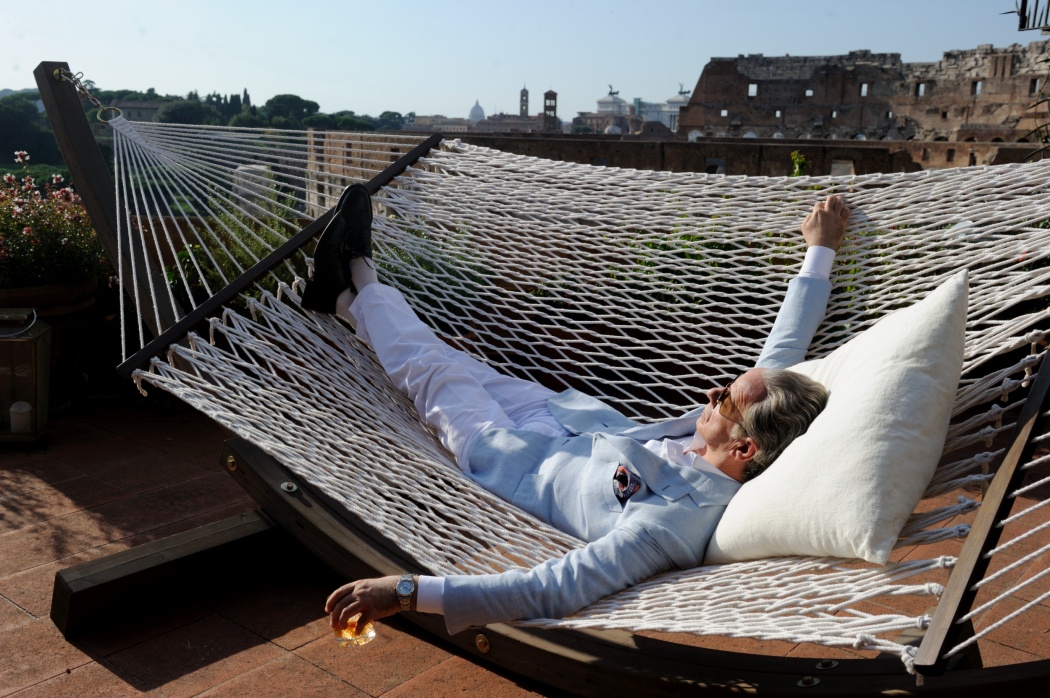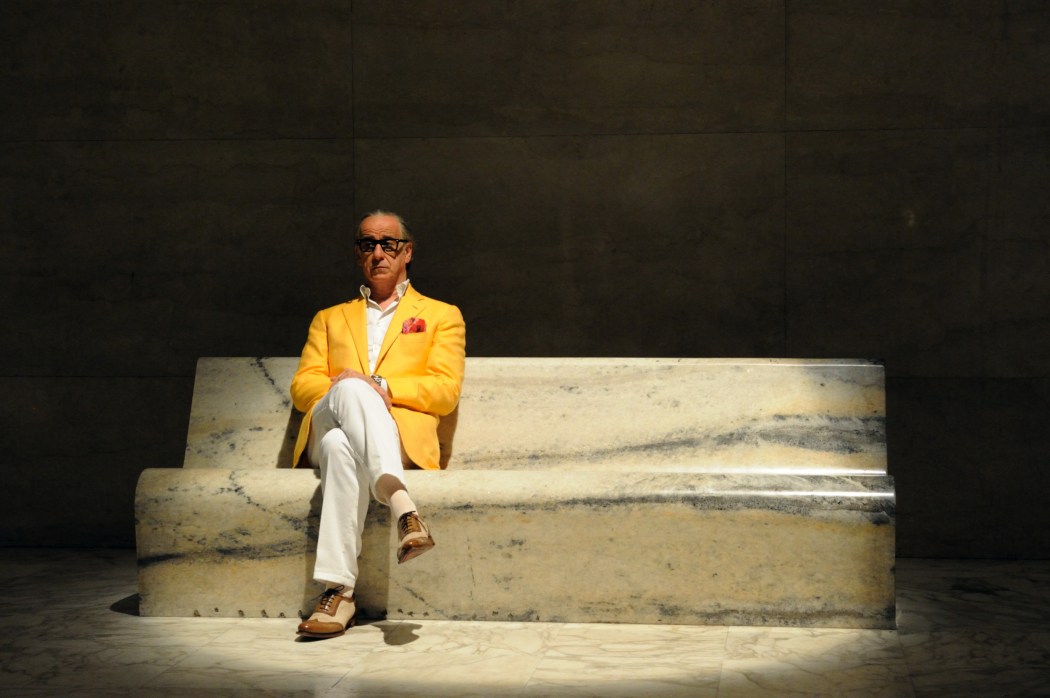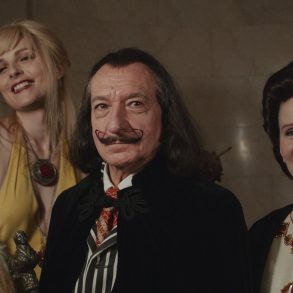Director: Paolo Sorrentino
Writers: Paolo Sorrentino, Umberto Contarello
Starring: Toni Servillo, Carlo Verdone, Sabrina Ferilli
Runtime: 142 min
Rating: 14A
Paolo Sorrentino has established himself as an ambitious and provocative filmmaker. His work has been praised by many critics, and his films have been projected at the Cannes Film Festival as well as various other locations. With The Great Beauty, Sorrentino creates a world of excess and grotesque comedy, where the mundane creates a reflection of one’s own self that is terribly realistic, but comedic nonetheless.
Reminiscent of Federico Fellini’s 8 1/2 , this film is both a portrait of lavish living in Rome and of the existential decay humans must inevitably go through. The Great Beauty follows the life of Jep Gambardella (Toni Servillo), a journalist who is widely known for a novel he wrote many years in the past. Although Gambardella is now wealthy, famous, and able to enjoy his old age without a care, he still wonders about the meaning of his own void life. While remembering his past and pondering his present, Gambardella roams through the city of Rome in the hopes of once again finding that great beauty who inspired him long ago.

Visually, the film is an absolute joy to watch. Dynamic camerawork, uncomfortable yet awfully amusing close-ups, and beautifully symmetrical shots are just a few of the many rewards the film provides cinematographically. The colours are vibrant and a contrast between light and dark is often created from shot to shot. There is a plethora of characters of all ages, with all sorts of physical features and traits. These elements combine in order to create something utterly delightful that stimulates the viewer into wanting the film to go on forever.
The cast also does wonders in order to create such a vivid image of Rome. Toni Servillo, as the aging genius Jep Gambardella, creates a character who, although reminiscent of Guido Anselmo in 8 1/2, still manages to give the writer a warmth and comedic element that Guido never had. Although Gambardella clearly belongs to an exclusive upper class, he remains extremely relatable, and his woes are not too different from the woes of the average viewer. Gambardella is a reflection of every spectator, no matter how old, and regardless of the emotional hardships he goes through, he is a character that most viewers would want to become. It is impossible not to relate to the journalist at some point, and it is as if his internal monologue speaks for the minds of those hearing it. Although the rest of the actors create the perfect image of an aging Italian upper class, a special note should be made of Giusi Merli, who plays “Santa” (the Saint), a nun who took a vow of poverty, but strangely enough, ends up involved with Gambardella’s lavish living while visiting Italy. Although her appearance is brief, Merli’s acting is of an incredible caliber, and her portrayal of the 103-year-old woman is definitely one of the film’s highlights.

The rest of the elements of the film are equally delightful. The script is witty and tasteful. The music is thoroughly enjoyable and fitting, and although the film often creates a contrast between light and dark, silent and noisy, and happy and sad, it never feels segmented. These extremes are just reflections of dualities that happen every day in life. Everything in The Great Beauty works together to create an unforgettable film that is highly rewarding on a visual, emotional, and intellectual level. The Great Beauty reminds the viewer that life can be terribly sad, but it can also be filled with wonder, and there is nothing better to laugh at than at one’s own misery.
The most notable aspect of the film is simply how refreshing it is. Simultaneously entertaining, funny, sad, cryptic, and straightforward, it contains something for everyone, and manages to make every spectator smile. Watching films like The Great Beauty reminds viewers of why cinema has become such an integral part of daily living. It reflects feelings in ways that wouldn’t be able to be transmitted any other way, and this is exactly what the film does: transmit emotions in a comedic, warm, and unique manner, leaving the viewer entirely satisfied.
The Breakdown
-
Direction - 10/1010/10
-
Performances - 9/109/10
-
Screenplay - 10/1010/10
-
Cinematography - 9/109/10
-
Music/Sound - 8/108/10







